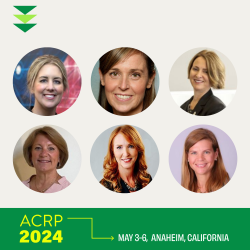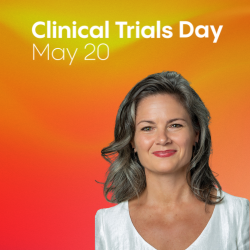Longstanding shortfalls in diversity in the clinical trial workforce and in patient populations are intertwined problems, most experts agree, and noted studies affirm. While the situation remains a complex challenge in some ways, for Katherine Taylor, senior director/head of Risk Evaluation and Adaptive Integrated Monitoring at Merck, there is at least one fundamentally simple way to mitigate the issue: Be intentional.
“I want to provide the opportunity for the untapped talent of” members of underrepresented ethnic groups (UEGs) “and bring them to the table,” Taylor says, further noting that “there is room for African Americans at the leadership table.”
Diverse voices bring valuable new perspectives to projects and organizations, Taylor explains. “Diversity is in the eye of the beholder, and it’s who’s [sitting] at the table that matters” when it comes to making decisions and shaping policies that strive to achieve positive patient outcomes, she adds.
“It’s incumbent on us to promote diversity, equity, and inclusion,” Taylor also says, placing an emphasis on equity in the equation. She points to an example of the application of equitable solutions, noting how students in the same school district come from diverse backgrounds and require and deserve thoughtful, intentional actions in terms of equitable opportunities and resources for learning.
“Think of the uneven access to computers and Internet” students face from one district to another in some regions, she notes. A school board plan calling on students to participate in class online simply won’t work if students don’t have access to the same tools, she notes. Further, some families of students may even struggle to keep their electricity on. “Without equity, it doesn’t work,” she gives as the takeaway message.
She’s a firm believer in helping advance members of UEGs to leadership positions in all corners of the clinical trial space, and she’s proud to be part of a larger organization sharing her philosophy of equitable access for all.
“Under the leadership of Andy Lee [senior vice president and head of Global Clinical Trial Operations (GCTO)], Merck has made great strides in its efforts to diversify the clinical trial workforce,” Taylor says. In addition to powerful internal programs, Merck recently announced its renewed commitment to ACRP’s Partners in Workforce Advancement initiative.
“We’ve made great progress at Merck and GCTO and will expand the momentum amongst and across other organizations within Merck Research Laboratory,” Taylor says. “We are fully committed to fostering an environment of diversity, equity, and inclusion through the talent pipeline and recruitment, our culture and community, and diversity in clinical trials. We use our Employee Business Resource Groups to drive this progress and maintain accountability.”
Though February is Black History Month, Taylor says she “maintains awareness of the intentionality of ‘servant leadership.’” It begins with acknowledging that “I’m standing on the shoulders of my ancestors, giants, hard-working parents, mentors, and others” who supported her own remarkable and inspiring professional journey.
“It takes courage to have these conversations,” Taylor acknowledges. “We have to have these honest, difficult conversations and not jump to conclusions.” Finally, when the talking is done, it’s about action and “making intentional commitments to change,” she says.
Author: Michael Causey



